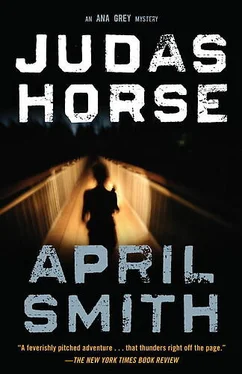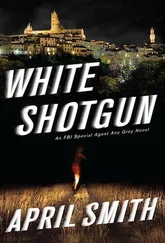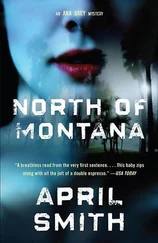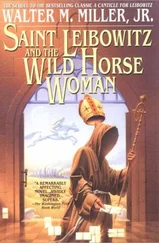The scene in the kitchen could not be more domestic. Every box of cereal in the pantry has been taken out and lined up on the counter, and Megan and I are mixing lurid rainbows of flakes and chips and marshmallow bits like kids at a sundae bar. It’s either Armageddon or a sleepover. Stone has been studying the fish report in the newspaper, as usual.
“‘Yesterday five hundred and twelve chinook salmon moved through the fish ladders in an hour,’” he reads. “That’s the highest count all summer. Having fun undercover, Ana Grey?” I give him a grimace. I spent a sleepless night on the couch guarded by Mr. Terminate, who stayed awake doing coke, an AK-47 across his knees. But this morning, he and Mountain Man were gone.
“I’m glad we’ve all come clean,” Stone says. “So we can trade war stories. I remember one time undercover on the beach in northern California with a dozen naked hippies, all tripping on acid, entwined in a mound like a bunch of seals, like something dumped out of the sea. And here we are, right back to it.” He fingers the Colt in the holster. “Just like the old days, minus the pussy — no offense.” “I was there, darlin’,” Megan deadpans.
Stone laughs as Sara comes downstairs wearing flannel drawstring pants and a lingerie top without a bra, still all soft focus from sleep.
“Where’s Slammer? Did he already eat?”
Dick Stone informs her that Slammer has left.
“Left where?”
“Left the farm. He’s gone. Just took off. Said he couldn’t take it here anymore. Because I’m a prick, evidently.” “What?” Sara is disbelieving. “He wouldn’t just split like that. Without telling me? Darcy, did you see him go?” I shake my head. “First I’ve heard of it.”
Sara flushes pink. “What did you do to him?”
“Nothing. Left of his own free will.”
Megan: “He walked out wearing his backpack. Check his room; you’ll see it’s gone.” “I don’t believe you. What is going on?”
“Well,” says Megan, “for one thing, Darcy here is a fed.”
“A what?”
“She’s a cop. A spy. It’s a brand-new day, Sara,” Stone announces.
Sara’s look goes blank and her delicate face shuts down.
Unreachable.
“I’m with the FBI and I’ve been working undercover to infiltrate FAN. This is what it really looks like when your cover has been blown,” I say, waving a spoon toward the collection of fluorescent cereal boxes with cartoon characters flying spaceships and riding tricycles.
The gesture takes in the superior look on Dick Stone’s face, Megan’s “I knew it all along” coolness, the hazelnut trees, lost animals, and, just beyond the cottonwood trees, hopefully, a hostage rescue team assembled from three states.
Her eyelids flutter.
“Did my parents send you?”
Ignoring Dick Stone’s chuckle, I say, “No, Sara, I was sent by the U.S. government to destroy a terrorist cell. These people have broken the law and they are going to jail. When the time comes, do what I tell you, and you will be safe with me.” The chuckle again. He’s enjoying this.
“What about Slammer?”
Stone touches her wrist. “Don’t let it break your heart.”
“He wouldn’t leave me. We’re friends. ”
“He’ll show up again. You know how he is.”
The girl still can’t make sense of it. “Slammer just left — on foot?”
“John and his buddy gave him a ride.”
“Where to?”
“The bus station.”
My gut tightens. The fact that Stone has disclosed Slammer left with the goons is ominous. Maybe Slammer became too rebellious, too much of an obstacle, like me. “The bus station” could mean the Dumpster at the shooting range. Alerted by the sound of heavy tires on gravel, we watch as McCord’s Silverado turns into the driveway. Sara runs toward the door.
“Where do you think you’re going?”
“Sterling’s here. He’s got the wraps for Geronimo’s leg.”
“What happened to Geronimo?”
“He banged his leg against the rail yesterday. It’s all swollen.”
“Go,” says Megan with a tired wave. “Take care of the baby.” Her eyes have reddened and pooled.
Stone allows Sara to leave.
Stone fills a small enameled pot with water. He turns the knob on the stove until the electronic igniter clicks. He waits for the flame. With smooth, familiar movements, he pops the scarred white cabinet open, removes a paper box, and holds it against his belly while choosing a packet of red bush tea. He slaps the door shut.
The tension at the kitchen table is like waiting for a hurricane. We are losing the sun and palm trees are blowing inside out; traffic lights swing wildly on their cables. The storm shutters are up and the house is sealed, but within the hour we will be beset by knocking winds like a thousand screaming inmates.
Stone sits down and stares into his cup. A sightless maroon surface stares back at him.
“I’d talk about the philosophical aspects of these people I was living with,” he says, “but all the FBI cared about was ‘Where are the fugitives? If they’re not planning to blow something up, we’re not interested.’ There was no intelligence gathering. My supervisor wasn’t listening. ‘Where are the fugitives? Where are the fugitives?’
“They were trapped inside their own box. It was Hoover’s dirty little war and the Weathermen were the guerrillas. They knew the land. They had allies. It’s amazing how many well-to-do, educated people helped them out.” “That’s how pissed off everyone was about Vietnam,” Megan says.
“Then I go back to the office and get shit from the straight agents. So now I’m bitter toward the Bureau. Now it’s really them and us. Except I don’t fit in anywhere. Hoover’s saying hippies are filthy and depraved, but that’s the only place people like me are comfortable. The only folks who’ll shelter us. I would cry. I’d sit in my apartment in Venice and get high and eat nothing but candy for the sugar rush, and cry.
“And they knew it. The Bureau knew I was going wack but they did just the opposite — sent me back in. ‘This guy is good. He’s done it. He got himself accepted. Let’s send him back.’ Which really fucked me up. I shifted up to Santa Barbara, lived in a tepee in a public park. Looked like a radical, hair down to here. Smoked dope, engaged in group sex. I knew Vietnam vets who threw their medals away. We tripped out together, cried for our brothers. I remember lying in a park on the grass and letting my tears go into the ground, like they were mixing with every casualty that ever was. The country was blowing apart. Our government was killing millions of civilians in Vietnam. The war drove everyone out of their minds.
“This is not how I was raised. My family had decorum. My father was a deacon of the church. But I’m still carrying the flag, tattered as it is, so I go up to Berkeley and do my thing. Agitate. Penetrate. Lie to the college kids who smoked my dope and were my friends. Sleep with chicks, big ones, ugly ones, lesbians—‘Put a flag over her face and do it for Old Glory,’ the Bureau used to say. ‘Get information and move on.’ Things were so volatile that before I took the assignment, I went back home to say good-bye to my parents, because I thought I might get killed on the job. I couldn’t tell them what I was doing, but I wanted them to know it was for the right reasons.
“But, yeah. The right reason. Agents I came up with, my own buddies, we would raid a suspected Weather collective in an apartment building in east Los Angeles and hang people outside the windows upside down by their ankles. I did that. True. We’d rob their houses, intimidate their families, spread false rumors about them at work, because our government said that was the way to win hearts and minds, remember?
Читать дальше












